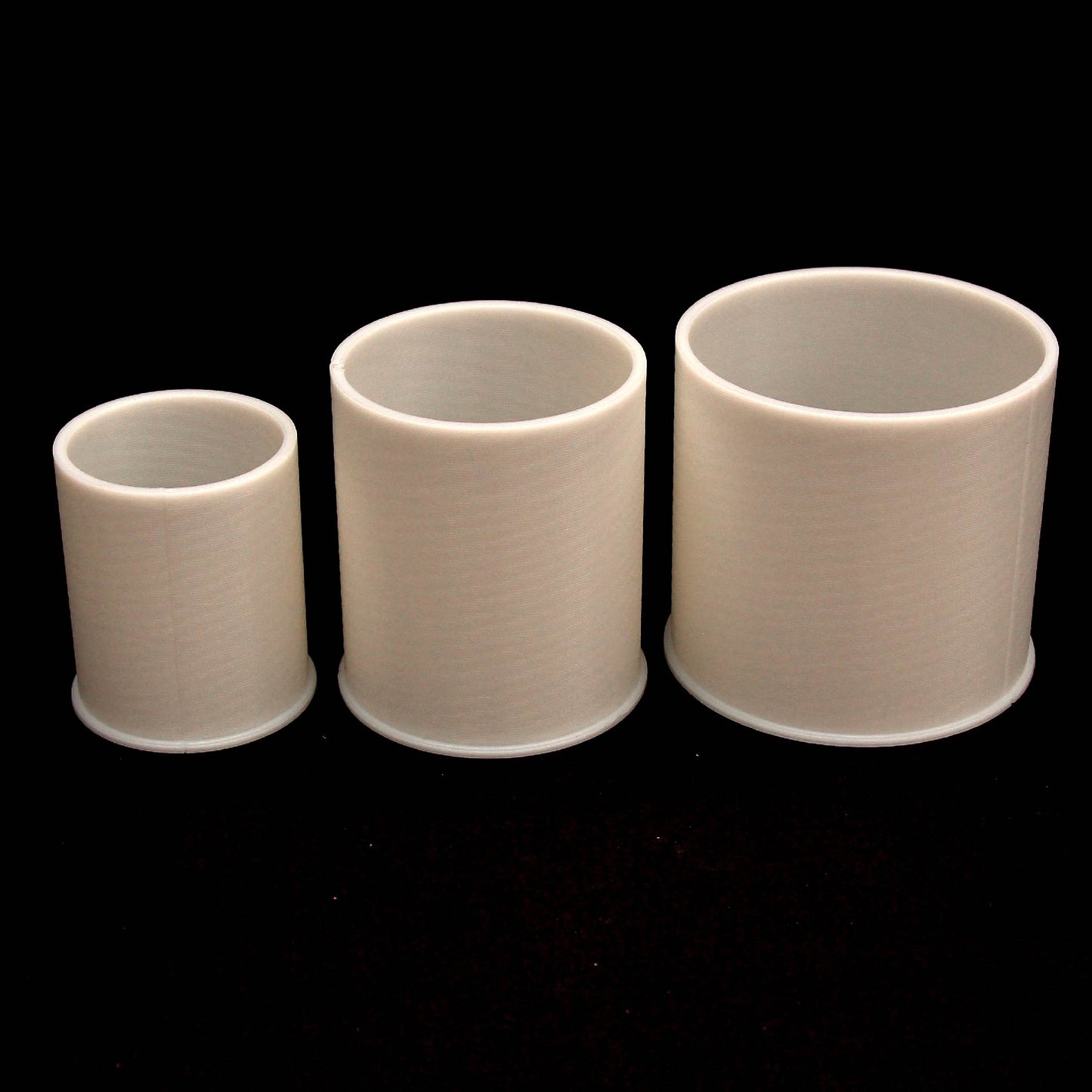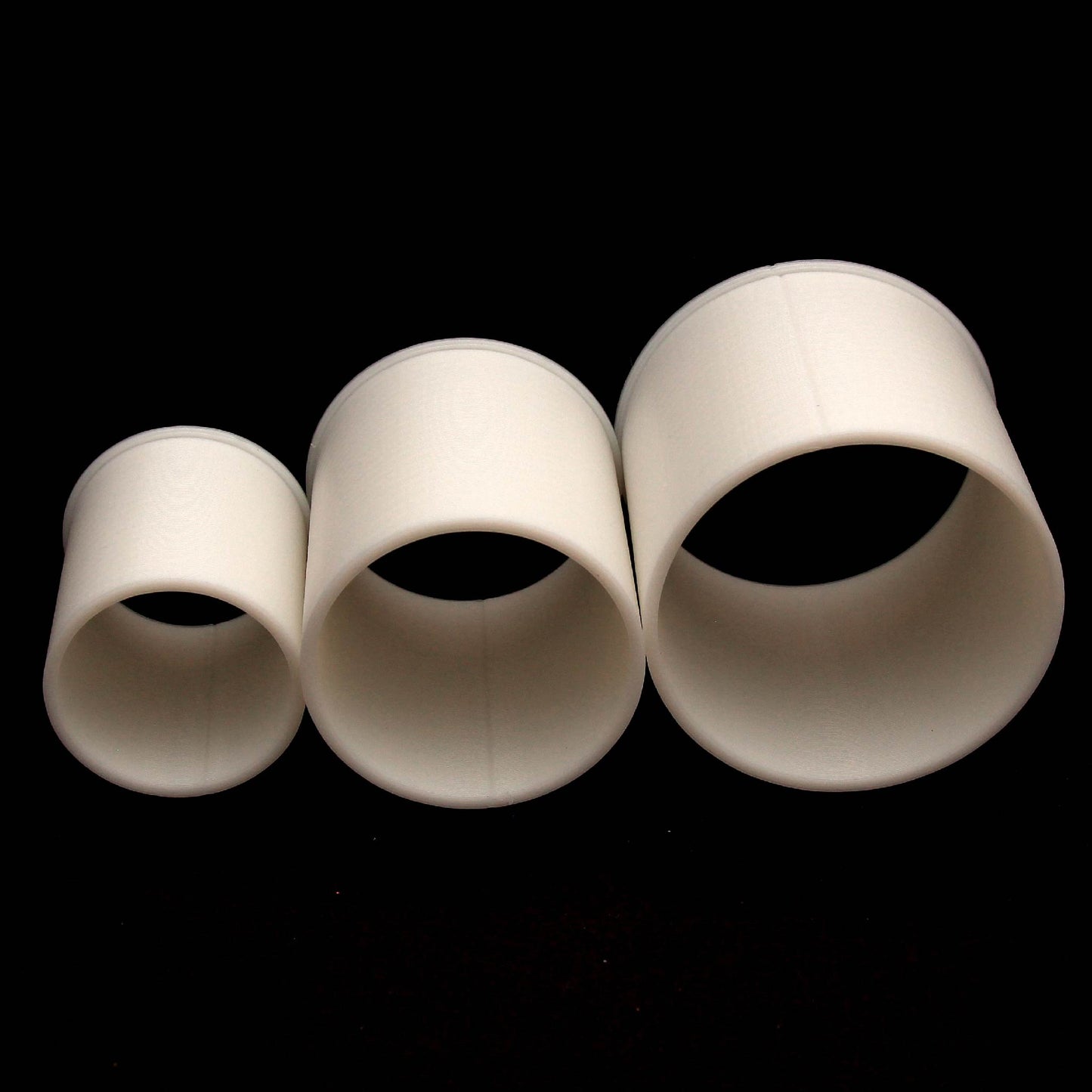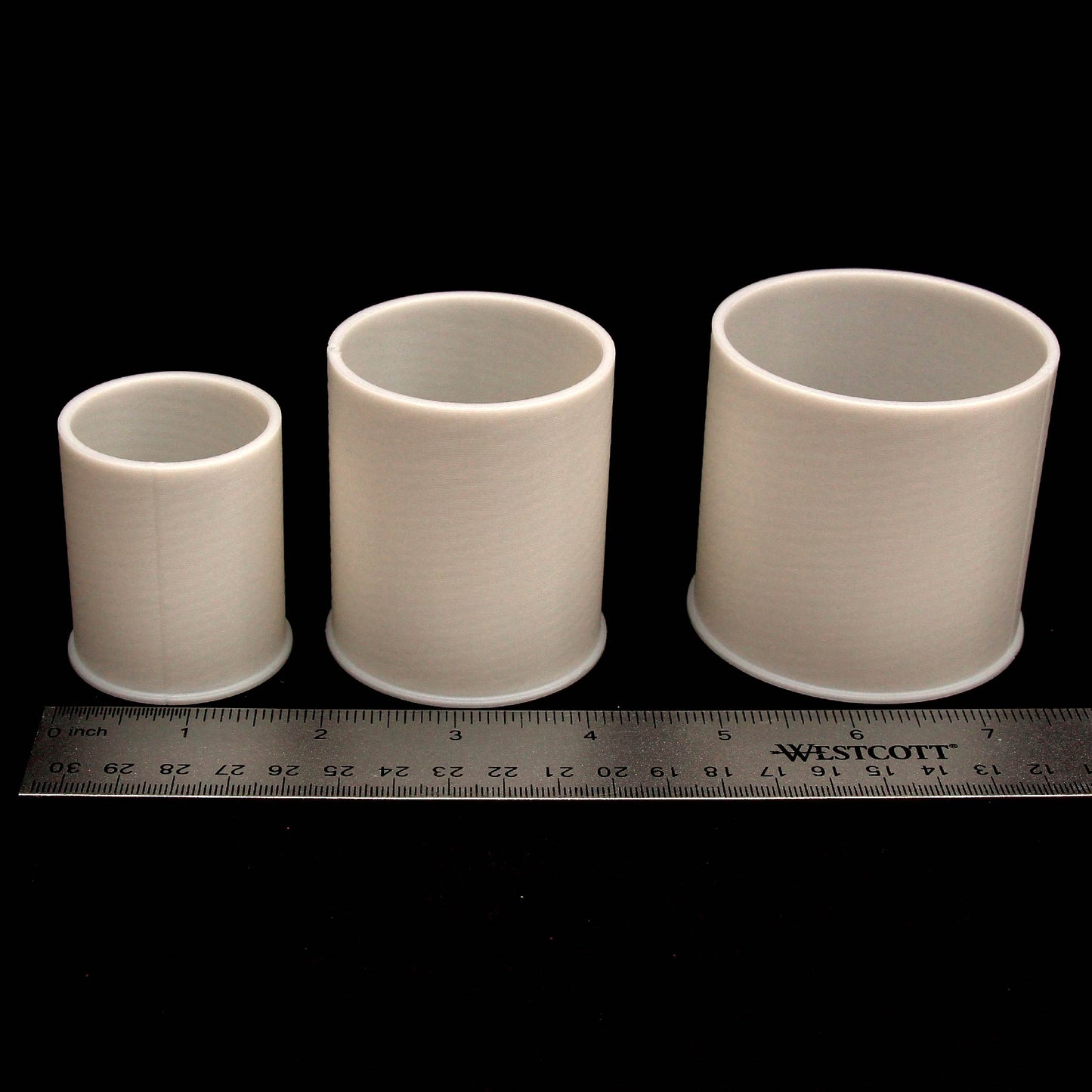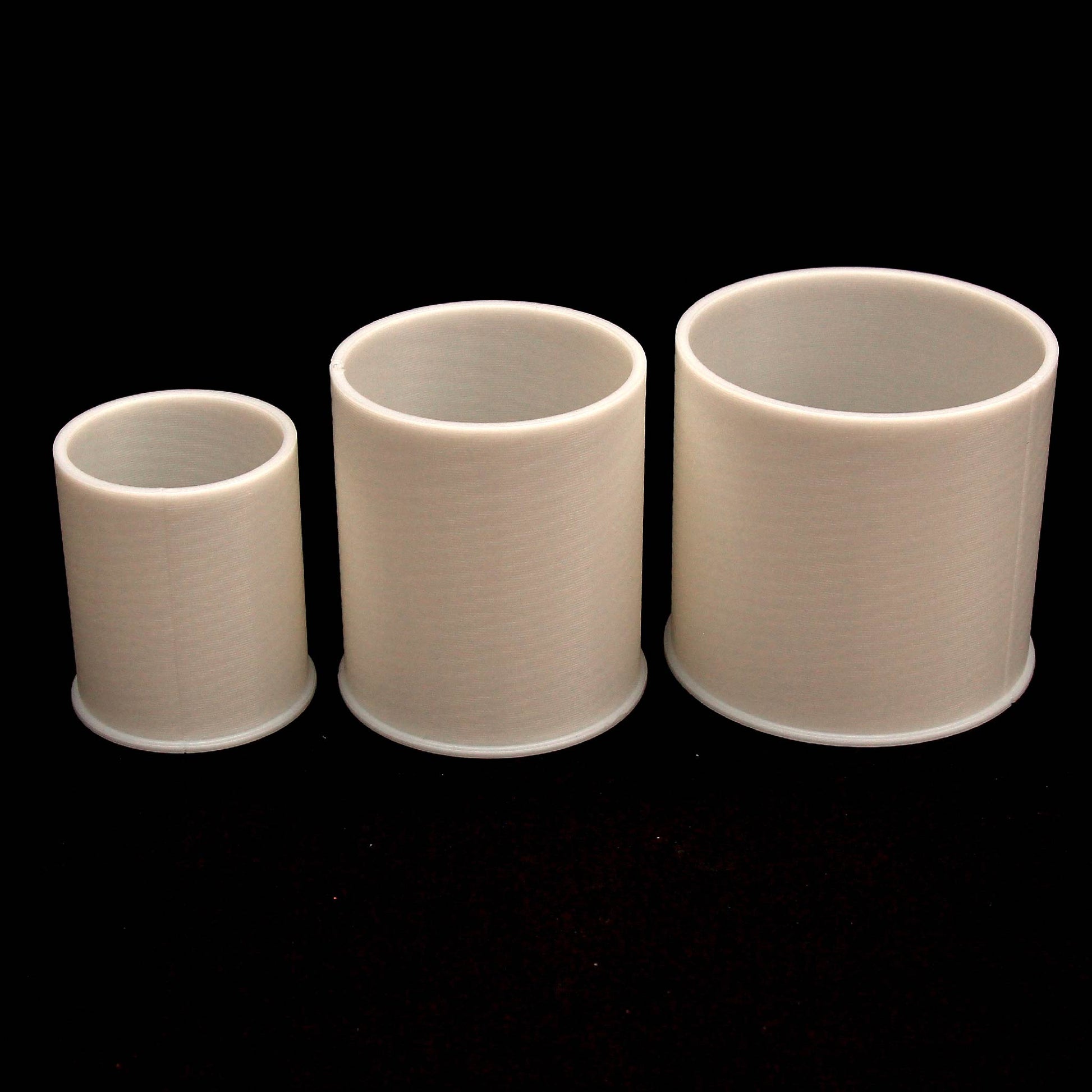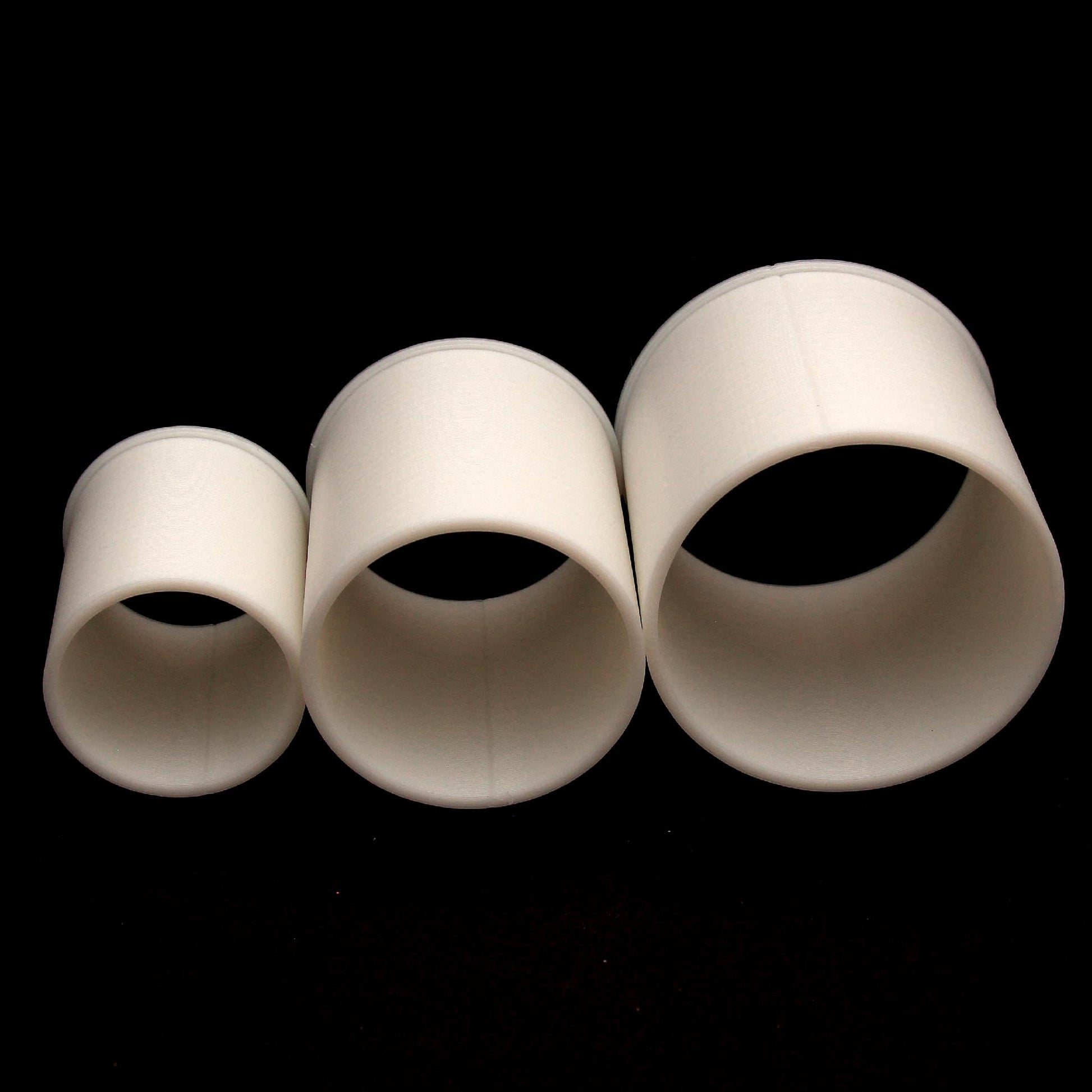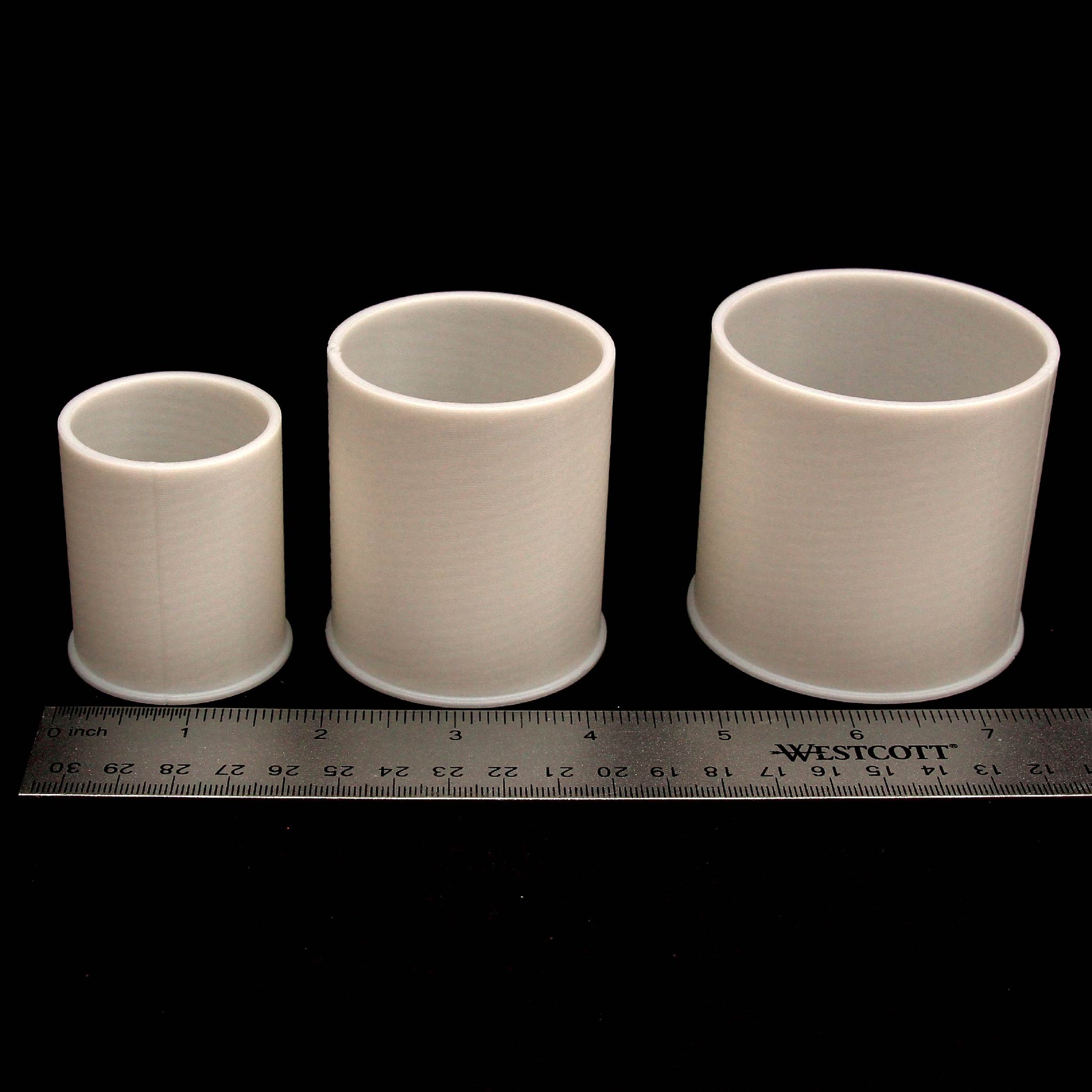PaintPourStore
Bottomless Open Cups Set of 3
Bottomless Open Cups Set of 3
Couldn't load pickup availability
This painting tool features an open bottom, which means there is no solid base to hold the paint. Instead, the cup sits on top of the painting surface.
How to use the bottomless floating cup
First make sure you have a base coat of one color covering the whole of the canvas. Place the open cup on the canvas and pour paint directly into the cup. You can hold it down with pressure to be able to fill the cup up. Then when you release the pressure, and gently lift the cup, paint will slowly pour out through the open bottom. As the paint exits the cup, it spreads across the canvas, creating unique and captivating patterns.
One of the advantages of using a bottomless floating cup is that it allows for precise control over the flow of paint. By adjusting the angle and tilt of the cup, you can guide the paint in specific directions, creating intricate designs or feathering effects. You can also combine multiple cups on the same canvas to achieve more complex compositions.
The floating cup technique is known for producing stunning abstract art with fluid and organic shapes. The absence of a solid base ensures that the paint can freely move and interact with the underlying surface, resulting in beautiful marbling, cells, and other captivating effects.
Cleaning Instructions for our 3D Printed Paint Tools
- Act Promptly: It is best to clean the 3D printed paint tool as soon as possible after using acrylic paint. Fresh paint is easier to remove than dried or cured paint.
- Submerge in cold water immediately after using the 3D printed paint pouring tool, it is crucial to prevent the paint from drying on the surface. Submerge the tool in water as soon as possible after use. This step will stop the paint drying and make it easier to clean.
- Rinse the tool under a stream of high-pressure cold water. The high pressure will help remove paint from the tool. Ensure that all the paint residue is washed away.
- Air Dry: Once the tool is free of acrylic paint, pat it dry with a clean towel or leave it to air dry in a well-ventilated area. Avoid using heat or hot air to speed up the drying process, as it may damage the 3D printed tool.
Important Notes:
- Avoid using hot water for cleaning the 3D printed paint pouring tool, as it may cause the tool to deform or warp.
- If the paint pouring tool has complex or hard-to-reach areas, you can use a toothbrush or cotton swabs to ensure thorough cleaning. However, high pressure water from a faucet sprayer should be adequate to remove all paint.
- Regularly clean the paint pouring tool after each use to prevent paint build-up and maintain its performance.
- As our paint tools are white, they are likely to become slightly stained over time. This is due to the pigments in the paint staining the plastic. It is perfectly normal and will not affect any future use.
By following these instructions, you should be able to effectively remove acrylic paint from your 3D printed pouring tool and keep it in good condition for future use.
